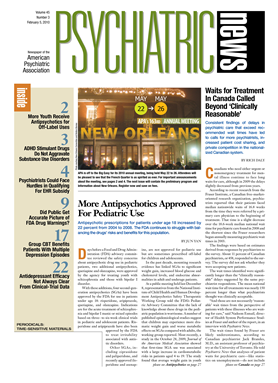Child protection is intertwined with the mental health and psychosocial well-being of children during and after armed conflicts, said Amanda Melville, a child-protection specialist with the United Nations Children's Fund (UNICEF) in New York.
“Protection of children from violence is the foundation of psychosocial well-being, and psychosocial well-being contributes to child protection by lessening stress on caregivers,” said Melville, speaking at a conference on children and armed conflict held at the National Academy of Sciences in Washington, D.C., last December.
But deciding what local health officials and international aid organizations should do to ease the psychological aftereffects of conflicts on children is anything but obvious, say those who work in the field.
Even the terminology is ambiguous, despite guidelines on appropriate interventions offered by the Inter-Agency Standing Committee (IASC), a coordinating body of nongovernmental aid organizations.
Part of the reason is that the different entities that work to help children bring different experiences, resources, and expertise to the scene.
The guidelines offer a framework to “plan, establish, and coordinate a set of minimum multi-sectoral responses to protect and improve people's mental health and psychosocial well-being in the midst of an emergency,” said the IASC document, issued in 2007.
The guidelines emphasize that they represent a floor, not a ceiling, to care for children, said Melville, a member of the IASC working group on mental health issues.
Although the document states that “mental health and psychosocial well-being” is a composite term, some critics have disparaged psychosocial interventions, saying, according to Melville: “You're just entertaining survivors—you're not really helping them.”
The arguments about helping children are oversimplified into “sports and recreation versus counseling,” said Melville.
When she goes into the field, she hears from aid workers that normalizing the life of children with psychosocial support is acceptable, but clinical interventions are not, because they do not reach large numbers of children.
Nonetheless, she has also seen an over-focus on a Western medical model that puts too much emphasis on symptomatology and processing the experience of the emergency. But both have their place, she said.
Aid organizations should integrate some social and psychological considerations into basic services and security that they provide for populations after disasters, she said. That doesn't exclude more focused clinical interventions or those who need them.
(Of course, primary prevention—solving the fundamental political problems that caused conflicts before they started—would be best, she added.)
What Do the Data Say?
Another problem for aid agencies and for IASC is the paucity of data on the effectiveness of any postconflict interventions.
To overcome that, UNICEF helped organize a study in the West Bank and Gaza involving eight diverse organizations. These included international bodies such as the Red Cross/Red Crescent, private groups such as Save the Children, and the Palestinian ministry of health.
It took months of discussions among the groups to build a consensus that shifted the project's intended results from output (that is, number of children served) to outcomes. The consortium developed a questionnaire to record practitioners' assessment of engagement at home and school, social relations, problem solving, and reduced “troubled feelings.”
“We didn't need additional funding for this research,” said Melville. “We just needed to work together.”
Findings indicated that the children studied had high resilience levels at baseline and that psychosocial programs, regardless of their type, significantly increased that resilience, said Melville.
Regardless of the specific outcomes, the long-term value of the study lay in carrying out a standardized evaluation, she said. If expanded, this practice will allow agencies and funders to compare programs and expand research into interventions.
Prevent Unintended Consequences
Measuring outcomes with common indicators and building an evidence base can help aid groups determine if their work is effective, cost-effective, and scalable, said Michael Wessells, Ph.D., a professor of clinical population and family health in the Mailman School of Public Health at Columbia University and a professor of psychology at Randolph-Macon College in Ashland, Va.
Existing studies hardly ever measure unintended negative consequences, making it hard to prevent them, he said. “We can't say our job is done until we go back 15 or 20 years later and see the results.”
“Clinical interventions are important but they are not the lead role,” he said. As an example, he cited work in northeast Afghanistan where girls were forced into early marriages with older men for economic reasons. That led to an increase in suicide by the girls to avoid humiliation and abuse.
“Prevention was the logical first step,” said Wessells. Rather than lecturing the local population on the evils of marrying off 11-year-old girls, Wessells' group, ChildFund/Afghanistan, formed child well-being committees that worked from 2004 to 2006 with moderate imams and other moderate men who agreed that forced marriage was a child protection, health, and mental health issue, not primarily a religious one.
“The community mobilized to develop a community-owned and -driven solution,” he said, illustrating that integrating local healing traditions with Western psychiatry takes much preliminary work.
Such approaches only underscore the critical role of the social and economic environments in mental health in conflict zones, added Catherine Panter-Brick, Ph.D., a professor of anthropology at Durham University in the United Kingdom.
“Poor governance and a poor economy lead to material poverty and family violence,” said Panter-Brick, who has also worked in Afghanistan.
If adversity cascades through society and families, so does hope, she said. Many in Afghanistan look to education as a path out of their long-term suffering, but then find their way blocked by the need to earn an immediate living to survive or by cultural norms that tell girls not to go to school.
“Hope is fine to keep people going, but you have to follow through,” said Panter-Brick.
The conference, titled “Children and Armed Conflict: Risk, Resilience, and Mental Health,” was organized by Siham Muntasser, M.D., an assistant professor of behavioral medicine and psychiatry at West Virginia University School of Medicine and by John Rosenquist of the Henry Jackson Foundation for the Advancement of Military Medicine.
